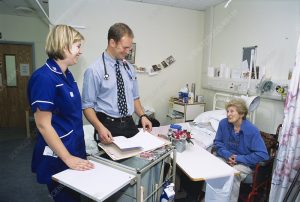This is how the AI article summary could look. Lorem ipsum dolor sit amet, consectetur adipiscing elit, sed do eiusmod tempor incididunt ut labore et dolore magna aliqua. Ut enim ad minim veniam, quis nostrud exercitation ullamco laboris nisi ut aliquip ex ea commodo consequat.
How to get yourself discharged from hospital

Wear your own clothes. That is our best Top Tip. More of that later.
Remember a hospital is not a prison and you can discharge yourself anytime. But it’s best to do it with the doctors and nurses agreement.
Most stays are 6-7 days, or less. No one likes being in hospital. If you are in two weeks or more, that is a concern. It usually means that you are not fuller better, and/or a complication or new illness has happened.
Being discharged safely is another issue, and it is a fine balance between 4 things:
- Getting the diagnosis and treatment right
- Getting better – being in long enough to make sure you have a clear diagnosis and you are getting better
- Preventing complications – not being in any longer than necessary and experience complications related to immobility (blood clots in legs and lungs) or acquiring an infection from the hospital
- Risking readmission – being discharged too soon without your problem(s) sorted and risk readmission.
So. How can I help myself get discharged from hospital?
But there are 5 things you can do, to shift the balance to the correct line for you:
- Ask daily – when you are being discharged, on a daily basis from day 3 onwards
- Wear your own clothes and keep moving – and get ready. This gives the doctors and nurses a mental impression of someone that wants to go home – and helps prevent blood clots. Prepare your bag. Think about transport home and setting up your house (e.g. get meals delivered)
- One person – if you need help with your discharge, appoint one person to act as go-between with doctors and nurses. If there are more than one family member doing this, it can lead to mixed messages and delay discharge
- Show your knowledge – on ward rounds, to the medical team. Write down the diagnosis, treatment plan (and changes to both) – and their names. This should include the name of your consultant, the senior doctor in charge of your care, and his/her secretary’s phone number. Keep notes. Do not leave without a copy of your discharge summary
- Wear your own clothes. It shows that you want to go home.
Readmission
There is a significant risk (10%) of readmission especially in the first week after discharge.
Summary
We have described how to get yourself discharged from hospital. There is alot you can do. We hope its clearer now what you can do to help yourself.
